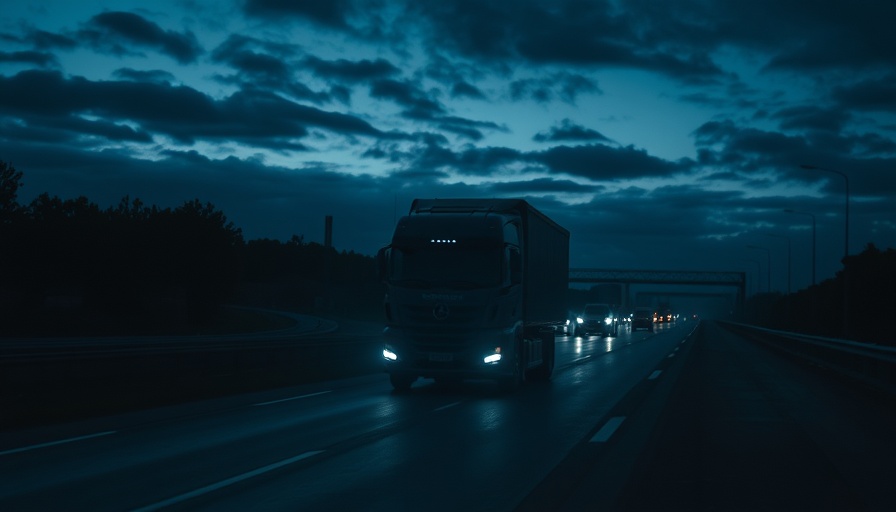
The Dawn of Nighttime Autonomous Trucking
Aurora Innovation, a name steadily gaining traction within the self-driving technology industry, is set to redefine the transportation landscape in America. With its latest milestone, the company announced that its autonomous trucks can now safely operate at night, allowing them to travel longer distances and maximize delivery efficiency. This pivotal achievement not only casts a spotlight on Aurora’s innovative capabilities but also opens the door for significant advancements in freight logistics across the Sunbelt region of the United States.
Unlocking the Potential of the Sunbelt
CEO Chris Urmson has a grand vision for Aurora's autonomous fleet. He aims to “unlock” the Sunbelt of the U.S., focusing on vital routes that stretch from Miami to California. Early indications of success are apparent, with Aurora revealing it has three self-driving trucks commercializing freight transport between major Texas cities, Dallas and Houston. By the end of June, these trucks had accumulated over 20,000 driverless miles, a promising start that could revolutionize how goods are transported across vast distances.
The Importance of Night Operations
Nighttime operation is a game-changer for Aurora, as it allows their vehicles to outrun federally mandated service limitations for human truck drivers. Traditional drivers can only operate their vehicles for 11 hours in a 14-hour timeframe, but autonomous systems like those developed by Aurora can keep moving, optimizing delivery schedules and reducing costs for companies like Uber Freight and Hirschbach Motor Lines. Urmson stated, “the value is really on longer lengths — so 600 miles is certainly a good range,” indicating that this progress directly benefits freight logistics.
Technology Behind the Breakthrough
Aurora’s success at night comes from its groundbreaking lidar technology, which enables the trucks to detect obstacles up to 450 meters away in dark conditions. This state-of-the-art system not only identifies pedestrians and other vehicles, but it also enhances decision-making speed, functioning 11 seconds earlier than a traditional human driver might react.
Since its inception in 2017, Aurora has expanded its technological prowess by acquiring notable lidar companies, Blackmore and OURS Technology, which has significantly bolstered its operational capabilities. However, with nighttime driving now achievable, the next critical challenge is ensuring their trucks can navigate safely in rainy conditions, a hurdle Urmson's team is currently addressing.
Future Challenges and Opportunities
As Aurora continues to push toward achieving seamless operations in inclement weather, industry veterans caution about the complexities involved. Rain, which affects visibility and surface traction, poses unique difficulties for any kind of driver, whether human or autonomous. Aurora’s ongoing validation processes seek to mitigate these risks and ensure that their trucks can confidently traverse highways, even in adverse environments.
Impact on the Future of Freight Transport
The implications of Aurora’s technological advancements extend beyond simple logistics. By facilitating longer haul routes, the company is not only enhancing trucking efficiency but also paving the way for reduced costs in freight transportation, which could ultimately benefit consumers by reducing the prices of goods transported across the country. Aurora's innovations serve as a beacon for future developments in autonomous technology, further promising a shift in everyday logistics operations.
Conclusion: The Road Ahead
Aurora’s progress illustrates the rapid evolution of autonomous vehicle technology, reflecting broader trends in transportation. By harnessing advanced lidar technology and optimizing operations for night travel, the company is on its way to paving new roads, both literally and figuratively, in international tech news and exploring groundbreaking shifts in business tech news. The next step will be overcoming the challenges presented by adverse weather conditions, potentially shaping the future of autonomous freight models.
Stay tuned to the latest technology news for further updates on how Aurora and other companies are navigating these changes in the tech landscape.
 Add Row
Add Row  Add
Add 



Write A Comment